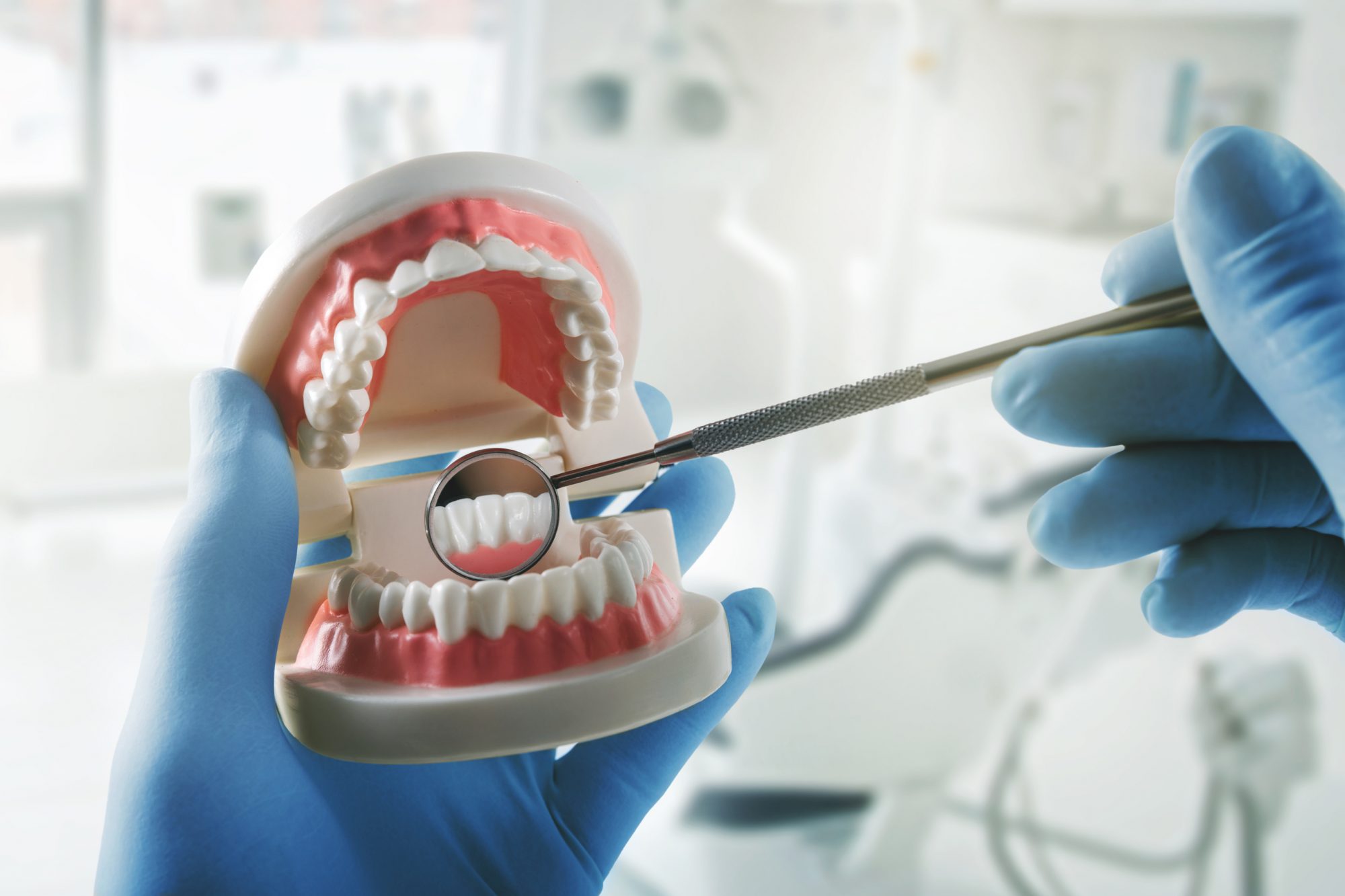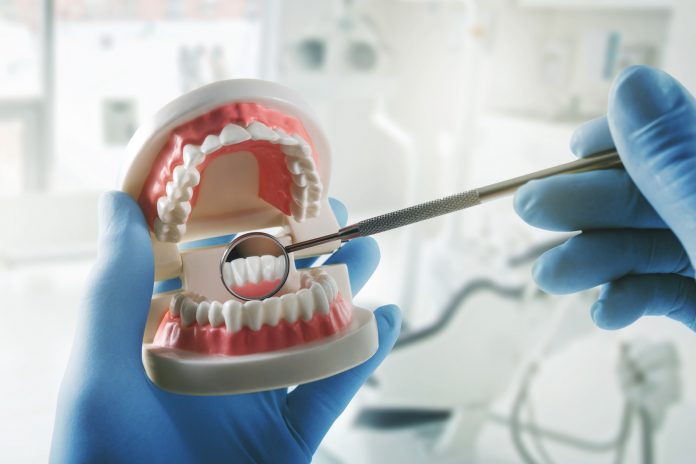Oral health and restorative dentistry


Karlo Jacutan, on behalf of Dental Arch, opinions on the significance of promoting oral health amid populations all through the COVID-19 pandemic and restorative dentistry
The value of continuing the advertising of oral health should really be a significant priority. It should really be recognised that men and women, in particular in demanding instances like during the pandemic, are far more most likely to eat food stuff that is damaging to their tooth in get to tackle the challenges activated by COVID-19 (whether or not that’s tension, boredom, etcetera.)
Allowing further advertising for oral health, at the pretty the very least, reminds people today to treatment for their oral health. With limited accessibility to dental clinics due to countrywide restrictions, folks have significantly less obtain to details relating to oral health expectations, improvement and consultancy.
Challenges for dentists and dentistry in Europe
Now that the Uk has struck a no-offer Brexit, it is significant to be aware the purpose that the EU has had in relation to oral health in the British isles.
The impact of Brexit towards oral healthcare seems to change by area – with more substantial metropolitan areas such as London and Manchester experiencing less substantial effects, even though smaller, rural parts are at a a great deal greater hazard of restricted accessibility to oral health products and sources (thanks to their reliance on the EU workforce, in accordance to James Coughlan & Sam Shah (2020) prepared in the British Dental Journal). (1)
This indicates that entry to medical necessities (e.g. anaesthetics, and so on.) are in threat of brief source as a final result of the Brexit no-trade deal built on 31st January 2020.
Dentistry safety all through the latest pandemic
Because of to the essential importance of each and every individual’s oral health, dental workplaces were allowed to remain open, while with limited access – which continue to limitations affected person visits.
On the other hand, in addition to restricted visits, more preventive actions are also continually applied in order to more minimise the risk of contamination.
BUPA Dental, for instance, has taken the critical determination to put into action these measures in purchase to prioritise client care. These steps incorporate pre-appointment setups, arrival etiquette, social distancing, required masks (PPE) and maintained sanitisation.
The good thing is, these essential implementations apply to just about all offices inside the Uk, which indicates that dental health offices and clinics are basically protected – if the implementations are followed by customers of the community.
The patient’s concerns attending dentists during a pandemic
The considerations of the community are usually by now resolved by the present-day apps of PPE and COVID-based steps by dental clinics, as most of their severe issues typically tumble into the realm of catching the coronavirus.
With the usual dental procedures using spot, it’s completely comprehensible that associates of the general public have anxieties when attending an appointment, acquiring their mouths exposed can be extremely hazardous through the pandemic.
Though these are commonly dealt with by the very careful implementation of coronavirus prevention measures in most clinics within the United kingdom. Which ordinarily contain deeper cleans of gear and antibacterial applications for all machines.
Working with delayed appointments given that lockdown
An excessive quantity of appointments have either been delayed or cancelled subsequent the barrier that the coronavirus has supplied in all aspects of healthcare.
Constrained visits have delayed so numerous appointments way down the calendar year, with unexpected emergency-considered dental appointments getting priority around some others.
Like with other healthcare adaptations, consultancy-based appointments have also been moved to mobile phone-by-mobile phone consultations to even more minimize chance. Nonetheless, this has also intended a detrimental impression on those who can’t use on the internet facilities to obtain a registered appointment with their neighborhood clinics.
It is evidently challenging to predict how these delayed appointments will be tackled in long run time, as regretably, we are nonetheless unaware of when the virus will be managed. The NHS is envisioned to apply a controlled procedure to make sure these appointments will not materialize once more in long run time, even so, it is vital to be certain that no additional globally impactful functions like this will transpire all over again.
Restorative dentistry
Restorative dentistry is the exercise of just restoring lacking or harmed enamel, and we bridge this hole by offering restorative alternatives these as fillings, crowns, implants and so on. The key precedence for the duration of this method is to reinstate the patient’s enamel, bringing back their pure smile, and protect against oral health problems.
The importance of restorative dentistry comes from allowing for sufferers to attain their self esteem again – as improperly structured or missing tooth can substantially have an impact on one’s health and confidence.
COVID-19 and its effects on restorative dentistry
For restorative dental processes, dental industry experts are commonly required to be in close make contact with with their client. With COVID-19, restorative processes are now risking dental gurus as they expose themselves to cross-contamination by means of saliva and fluids.
With the introduction of numerous COVID-19 prevention techniques, these processes are now safe to conduct.
Cleanliness, for case in point, is doubled in software for all dental machines, these kinds of as suction pumps – a important piece of machines through restorative strategies, are not cleaned with chlorine-primarily based disinfectant, ready for the next individual.
Kinds of restorative dentistry
Restorative choices this kind of as fillings ordinarily use artificial components these kinds of as dental amalgam (ordinarily composed of silver, copper, tin and other metallic elements to make improvements to the physical appearance and mechanical properties of a patient’s tooth in a risk-free method) and is commonly the most typical way to restore decaying enamel.
Crowns, on the other hand, utilise distinctive varieties of biocompatible products – which include things like porcelain fused to steel, gold and a new material named zirconium (a strong style of steel closely related to titanium), and this technique is employed to give equally toughness and defense to the tooth composition.
Dental implants use comparable supplies as crowns, utilising both equally zirconium, as nicely as titanium, and are utilized to swap lacking enamel.








